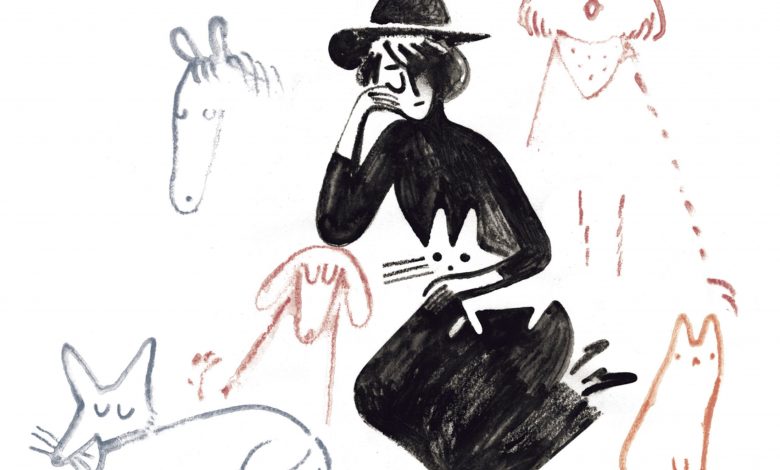
New York, USA
Heraclitus, a Greek philosopher, once proclaimed that there is nothing permanent in this world except change; it is change that is permanent. Change can come in both good and bad forms. This change sometimes can be very rapid. Take you, for example; try to vividly remember how your entire life was years ago. Today, you can see a huge change sneaking into your life from all sides: academically, financially, and even fashionably. Your life is turning upside down now in a blink of an eye. The change can just happen overnight when your brain feels it is time to do something unique. It is crystal clear that everyone reading this right now has experienced a change in his life in one way or another.
If the reader travels back to the 20th century in New York (the 1920’s to be exact), he can definitely see that change took another special form. Women at the time felt freer and came up with a new definition of themselves, demanding it was high time for them to be equal to men. According to Oxford Dictionary Online, these fashionable young women, known as flappers, were intent on enjoying themselves and flouting conventional standards of behaviors. These uninhibited women during this period would cut their hair short and attend parties where they ended up smoking a cigarette and getting drunk. They spent more time with their friends going outside to social events or going to the movies more than spending time with their families. One famous and talented writer who depicted the culture of this era accurately and effectively was Dorothy Parker.
Being unstable in life is one of the main themes of the story. Peter is a guy who does not know his arse from his elbow because of the hangover he got from the party the previous night. It feels as if he has lost his memory; he could not remember a thing. Despite the help of a lady that was with him trying to remind him, he still could not remember any of the events.
It is noteworthy how Parker wrote this story. She made Peter the main character and focused on him the whole time. He was on the couch the whole time because he could not move due to the hangover. She raised so many great topics, such as love, regret, naivety, and an alcoholic life in a form of dialogue full of questions, and these were sometimes rhetorical questions, such as “Didn’t I eat dinner?” (Parker 2)
Although the writer did not mention it specifically, it is obvious that the young lady in the story is a bit naïve by the way that she pretends not to see the dark side of Peter because she has feelings for him. She keeps telling him “You were perfectly fine.” (Parker 1,4) The actions say it all. She made him feel as if he was lost and posed many questions by using interjections, such as “Oh, yes,” (Parker 2) which are used to convey emotions of surprise for his memory loss. Parker also used repetition in her story “Oh, dear, oh, dear, oh, dear. Oh” (Parker 1,4) to make the story memorable and hard to forget. She chose great devices in her story to develop her characters and the plot.
The writer succeeds in fulfilling the goal of writing a story which is satirizing the generation of that period. The ending of the story was well-chosen and written because it leaves the reader in the dark hoping for a happy ending. However, that is not the case. The story ends with Peter requesting another drink which apparently will add insult to injury.
Eight years later, Parker nailed it with another beautiful piece of writing. This short story is breathtaking. If the author’s name had not been revealed, one of her readers would have known it regardless because Parker’s style of writing is legendary and unique, especially when it comes to satires. She knows how to keep the reader’s attention until the last sentence of her stories, so they enjoy every single word. In 1928, to be precise, Parker wrote Just a little one. This story spins around a speakeasy with a man and a woman wasting one evening drinking highballs. It is strange how they were talking about another woman called Edith and gossiping about her. This female character is depicted as a neurotic, insecure woman who drinks more than she is admitting to her male friend. Even though the reader never hears the dialogue of Fred, the reader is aware of his words through the rambling, sometimes irrational comments of the female character. The reader gets the impression that she may have romantic feelings for Fred that he does not share but is trying to be a protective friend to her. The woman chose finally to go out for a ride with Fred, the main character of the story, but this time to go searching for stray dogs and cats in the streets and to adopt them since both of them were fond of animals.
Parker’s way of choosing topics is unique. She basically sticks with the same themes ranging from male/female relationships, alcoholism, and exposing women’s image in that era “I’ve got to give up using mascara, Fred; life’s too sad.” (Parker, Just a Little One) in the second story. In this quote from the story, it feels as if Parker made the female character say: if one’s life is too sad, there is no need to put on mascara. When you are sitting with a man drinking some real Scotch and you see life as sad and hell, there is no need to wear some make-up. One may believe that mascara is a sign of happiness and personal satisfaction showing one’s beauty. But if the lady is not feeling happy or satisfied, there is no use for mascara. In this part, Parker was not serious; she was trying to be humorous.
After a quick look at both short stories, the readers see that both have traveled the same way. The main theme is about dramatic relationships between men and women and alcoholism. This might lead the reader to believe that she might have experienced some of that herself in her personal life and is basically revealing all the experiences she had been through. In the second story, she chose two characters, a man and a woman, who felt relaxed sharing each other’s concerns about life under the influence of alcohol. It is believed that if you want to know a man, try your best to get him drunk; he will tell you everything.
There is a great chance Parker had a rough childhood and unsuccessful love stories with men. For that, she takes advantage of her writings to mock these relationships and primarily women as is the case in “Just a little one”. However, she was clueless in “You Were Perfectly Fine”. Parker is mocking everything and being critical in both stories by focusing on the negative side of life. Nevertheless, she tried to be humorous at times. Writers have a purpose for writing. One of these purposes is to communicate with people (readers) or to cast the point of view of the writer. In other cases, like the one with which she is dealing in these stories, the writer reflects on herself and shares her experiences in life for the reader to learn from her in a wonderful, artistic way that keeps you reading and engaged until the last line of the story.
Works Cited
Dorothy, Parker. “You Were Perfectly Fine.”, 1-4p http://www.somanybooks.org/eng208/YouWerePerfectlyFine.pdf
Dorothy, Parker. “Just a Little One.” The New Yorker, May 5, 1928, https://www.newyorker.com/magazine/1928/05/12/just-a-little-one


